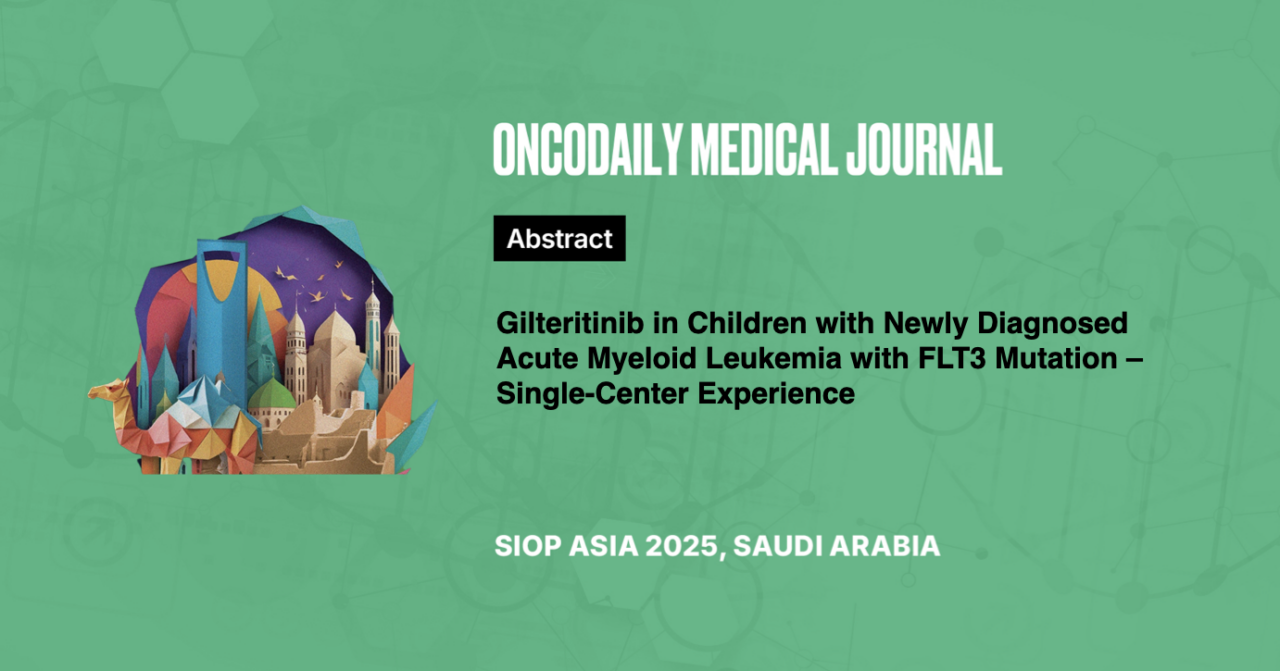Abstract
Introduction: Acute myeloid leukemia with FLT3 mutation, encoding FMS-like tyrosine kinase 3 is characterized by a high relapse rate and has an unfavorable prognosis. Gilteritinib – the second-generation FLT3 inhibitor, active against both ITD and TKD mutations. In adult patients with relapsed and refractory AML (r/r), it demonstrated high efficacy and safety compared to salvage chemotherapy. Experience with gilteritinib in children with FLT3 newly diagnosed AML is limited and includes patients mainly with r/r AML. Aim is to present single-center experience of gilteritinib in pediatric patients with newly diagnosed FLT3-positive AML.
Methodology: From 2023 to 2024 Gilteritinib therapy was administered to 5 patients with primarily diagnosed acute myeloid leukemia. Initial diagnosis included FISH, immunophenotyping and PCR diagnostics to confirm the mutation. In all cases were detected FLT-3 ITD mutation, in 4 cases in combination with other cytogenetic abnormalities (t(5;11), NUP98, t(3;5), WT1). Allelic ratio varied widely. Treatment was carried out according to the AML BFM 2004 protocol for the high-risk group, followed by allogeneic HSCT. Initial refractoriness to therapy was determined in three cases. Gilteritinib was administered at a dose of 2 mg/kg from the moment the target mutation was identified in combination with first-line chemotherapy. The response was assessed after the first course of therapy, in patients with initial refractoriness – 14 days after therapy, optionally. In all cases, the FLT3 mutation was not detected, complete remission was achieved, as well as MRD-negative status.
Results: All patients underwent allo-HSCT in complete MRD-negative remission. 4 patients are alive without relapse/progression. In one case, a relapse developed on the 100th day after allo-HSCT. In this case, gilteritinib therapy was repeated with salvage chemotherapy with achievement of complete molecular MRD-negative remission, but the patient died due to infectious complications. We did not record any adverse events during Gilteritinib, as well as an extension of the neutropenia period.





